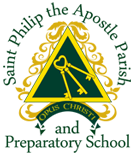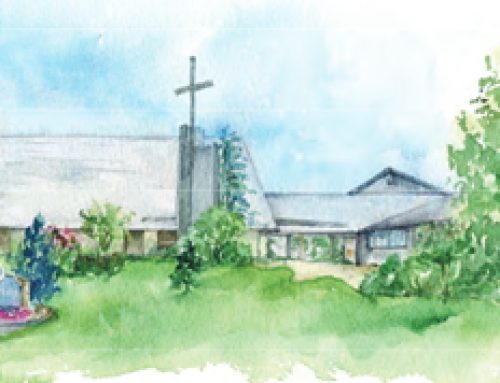FROM THE PASTOR’S DESK
Dear Parishioners,
Why would anyone choose to give myrrh to a baby? This is very likely what was going through Mary’s mind as the magi presented their gifts to her son. Gold? Gold is always useful, especially if your economic situation was as dire as that of the holy family. Frankincense is less desirable, but at least it could add an aroma to the air around the house. But myrrh? Myrrh was a spice used to embalm a dead body—hardly a gift to present to a newborn child. What could this exotic man from the East have been thinking to offer such a gift? Obviously, he could have benefited from a personal shopper.
Yet, even as we appreciate Mary’s perplexity, from the viewpoint of two thousand years it is obvious to us that the gifts of the magi were more symbolic than practical. If this newborn child was truly human (and everything we celebrate in this Christmas seasons attests that he was) then the wise men knew that his life would be a mixture of the three things that their gifts represented: the gold of achievement and success, the frankincense of happiness and joy, and the myrrh of suffering and death. Every human life is a mixture of these three things: success, joy, and pain. By presenting these gifts to the Christ child, the wise men were testifying that he was truly human. They were celebrating the fact that God really became one of us.
But of course, there is more. Through the incarnation, Christ not only took up our humanity, but he also redefined what it is to be human. Through his life, death, and resurrection, we now have the opportunity of living these three aspects of our humanity in a different and deeper way. As his disciples we can approach the achievements with humility. We can approach our joys with thanksgiving. We can approach our suffering with strength.
But, like Mary, it is the myrrh that trips us up. With God’s grace we can usually learn to be humble in our achievements and thankful in our blessings. But trying to be strong in our pain and suffering is the real challenge of life. When an evil which we cannot avoid or change enters our life, when we must deal with the death of someone that we love, with divorce, with cancer, with the betrayal of a friend, with addiction, with a terrible mistake that has hurt others, it is possible to respond in three ways. We can respond with denial, with despair, or with acceptance.
Those who choose to respond to pain with denial try to protect themselves from the suffering by rejecting what is real. Although this might soften the pain, it does so at the cost of separating those who choose denial from the real joys and the real relationships in their life. Those who choose the way of denial will in time have to live without love, because denial suffocates what is vital and valuable in living. Those who take the approach of despair go in a different direction. They wrap themselves in their own self-pity and give up on life. They emphasize only what is wrong in their life. They ignore every possibility of hope. They distance themselves from those who love them, isolating their lives in their suffering. But there is a way of dealing with pain that is neither denial nor despair. It is possible to accept the things that we cannot change. Those who take the approach of acceptance strive to emphasize the good things that are still present in their life, the people who still love them, and try to move forward attentive to every sign of hope. It is here where Christ is most important, because with Christ there is always hope. What we have learned from this newborn child is that our God will never abandon us, that God who moved his own son beyond the cross will move us beyond our suffering to new life. For those who have faith in Christ, it is possible to accept the things we cannot change with strength. It is possible to find hope even in the shadow of death.
So, who would give myrrh to a baby? A wise man. A wise man who understood that this child would give new depth to our humanity. In this child we can be humble in our achievements, thankful in our blessings, and strong in our pain. As life presents us with these three aspects of our humanity, we are called to live them out as followers of Christ.
So, if you wake up tomorrow morning and find some myrrh on your doorstep, do not deny it or let it lead you to despair. Instead accept the things you cannot change with the strength and the hope that comes from the newborn King of the Jews.
Peace,
Fr. Monteleone
To read the complete bulletin click here



